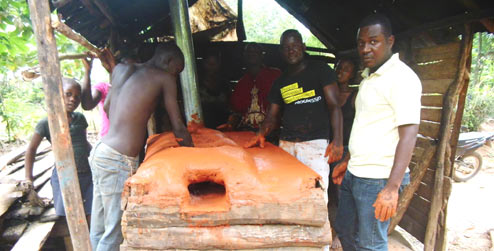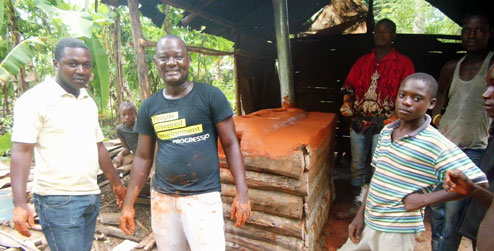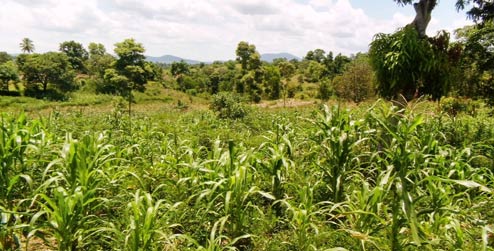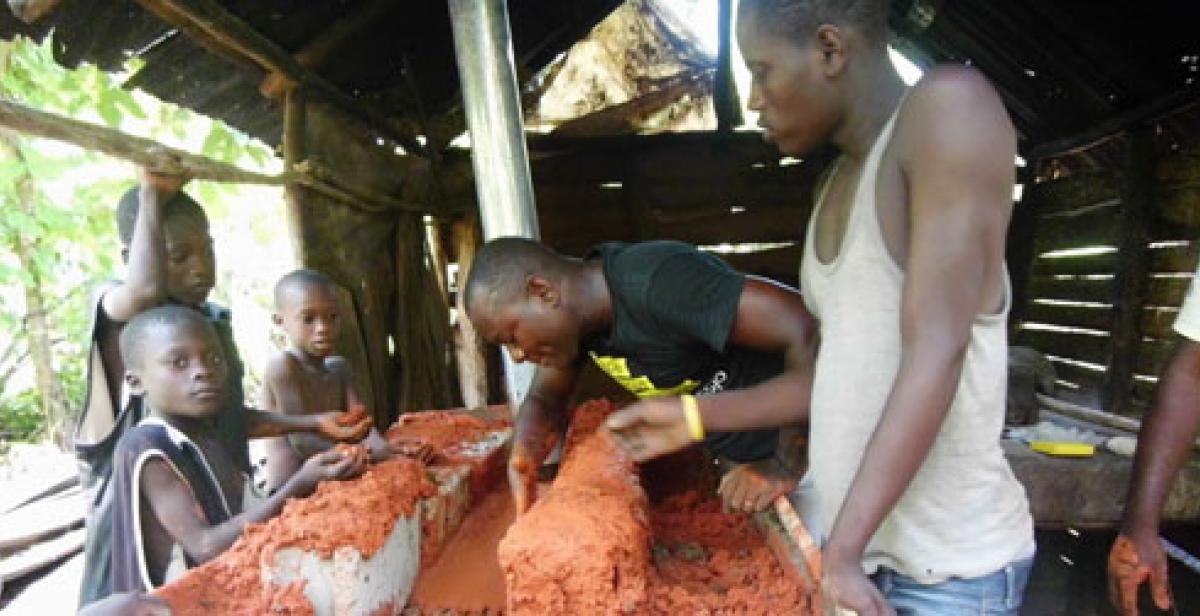Last week we started building the ecological stoves in Gens de Nantes – three stoves completed so far! We faced some major challenges, though.
The first was financial, as the budget was designed in 2009 before the earthquake and in the aftermath prices went up considerably. So we have a budget shortfall, but we are trying to be creative in order to build the target numbers of stoves – as beneficiaries have waited a long time to get an ecological stove that will have positive impacts on health, create an alternative energy source and reduce the use of charcoal considerably.

We came up with a way of reducing unit costs significantly through the support of the beneficiaries, who have committed to supplying some raw materials from the communities for the construction of the stoves. This is an important contribution in terms of ownership of the beneficiaries and how they will value the stoves. At the same time, it shows that we have been able to move from the traditional ‘hand-out’ approach to empowerment and active participation of the target communities.

The other challenge is linked to the construction and maintenance of the stoves. Despite the indication during the joint construction process, beneficiaries have been too keen to start using the stoves immediately, without letting them dry out completely first. This means they can be damaged, with small cracks appearing. However, we hope that with regular maintenance and support for the beneficiaries through follow-up by the team, the stoves will have a minimum of use life of 3 to 5 years.

We also concluded the field study for the implementation of an irrigation system that is fed by the water tank we constructed in the community of Vosanges (Lamine). This will irrigate the demonstration plot and some vegetable gardens, covering 300 square metres. (The photo above shows plots which will be irrigated through the additional irrigation system.)
Six channels should be constructed, connecting the water tank with the total area for vegetable production. This work will start in the upcoming two weeks. At the same time we prepared to follow up on the activities of installing small family gardens for vegetable production in Lamine and Gens de Nantes.
 Read more stories from our food security project
Read more stories from our food security project
Return to Food for a better future home page
Photos © Gabriel Petit-Homme/Progressio



